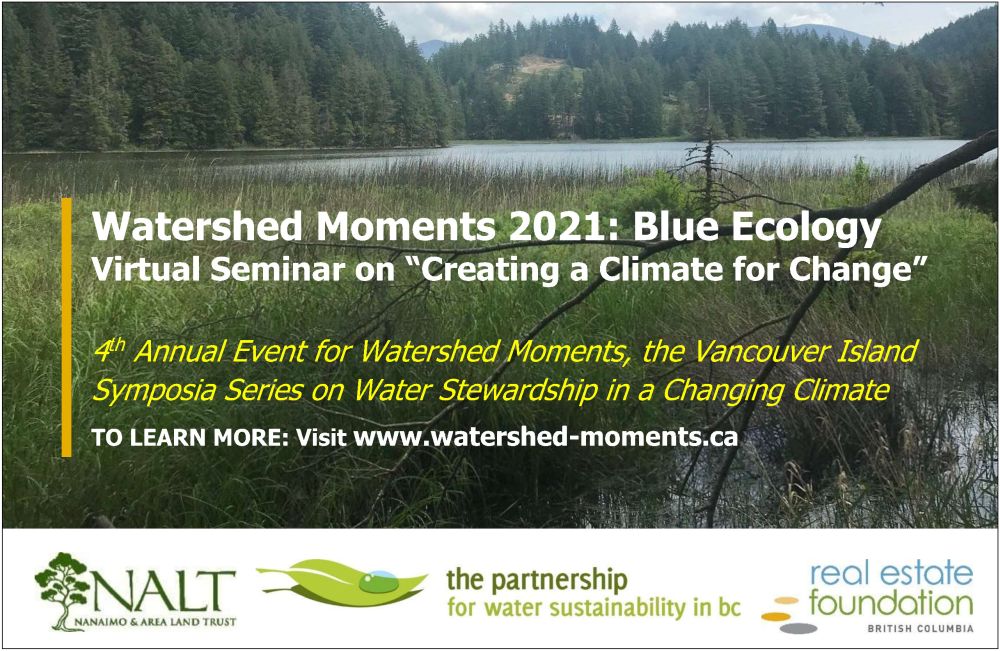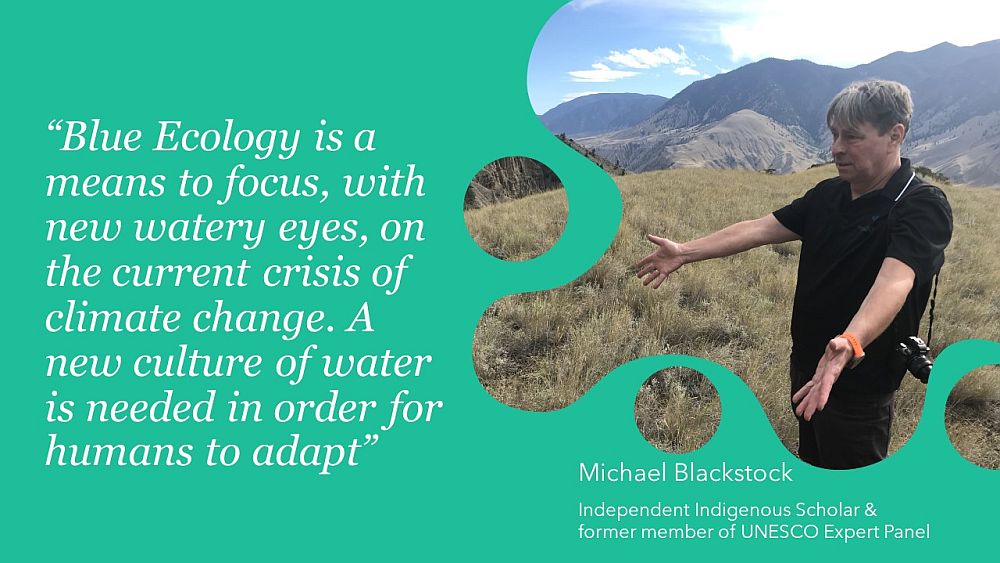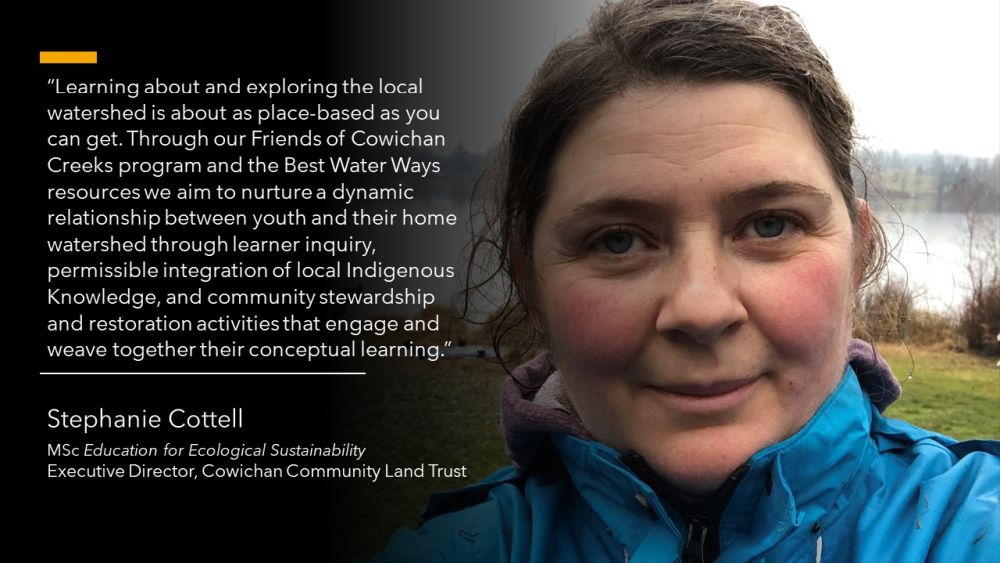YOUTH EDUCATION CONTEXT FOR WATERSHED MOMENTS 2021 / BLUE ECOLOGY VIRTUAL SEMINAR: “Ecological learning and reconciliation with Indigenous Peoples go hand in hand. We have a great deal to learn in our quest to live more gently and conscientiously here on Earth, a theme which is central to many Indigenous teachings,” stated Steph Cottell, Executive Director, Cowichan Community Land Trust (October 2021)
Note to Reader:
Over a 2- hour period, the Blue Ecology Virtual Seminar is structured in three parts: 1) a set of context presentations by a 4-person panel; 2) a conversation among the four panelists; and 3) audience questions to the panel. The seminar is an evening event, beginning at 7PM and concluding at 9PM. The seminar will be delivered through a combination of Zoom and YouTube to create a legacy resource.

TO REGISTER: https://www.civicinfo.bc.ca/event/2021/Blue-Ecology-Seminar
Creating a Climate for Change / Watershed Education Initiatives: Introduction to Panel Members
In the 4th annual event in the Watershed Moments Series, Michael Blackstock is the lead member of a 4-person panel that will share their experiences in trail-blazing watershed education for youth. He is joined by Linda Brooymans, Steph Cottell and Christina (Tina) Willard-Stepan. Blue Ecology, the interweaving of Indigenous and Western water stewardship knowledge is the over-arching theme for the event.
The four initiatives have a unifying thread – each addresses the “Nature-Deficit Disorder”, a term which is now widely recognized and understood. Nature-Deficit Disorder is the idea that human beings, especially children, are spending less time outdoors, and the belief that this change results in a wide range of behavioural problems. For this reason, a goal of watershed education initiatives for schools is to reconnect children with nature.





